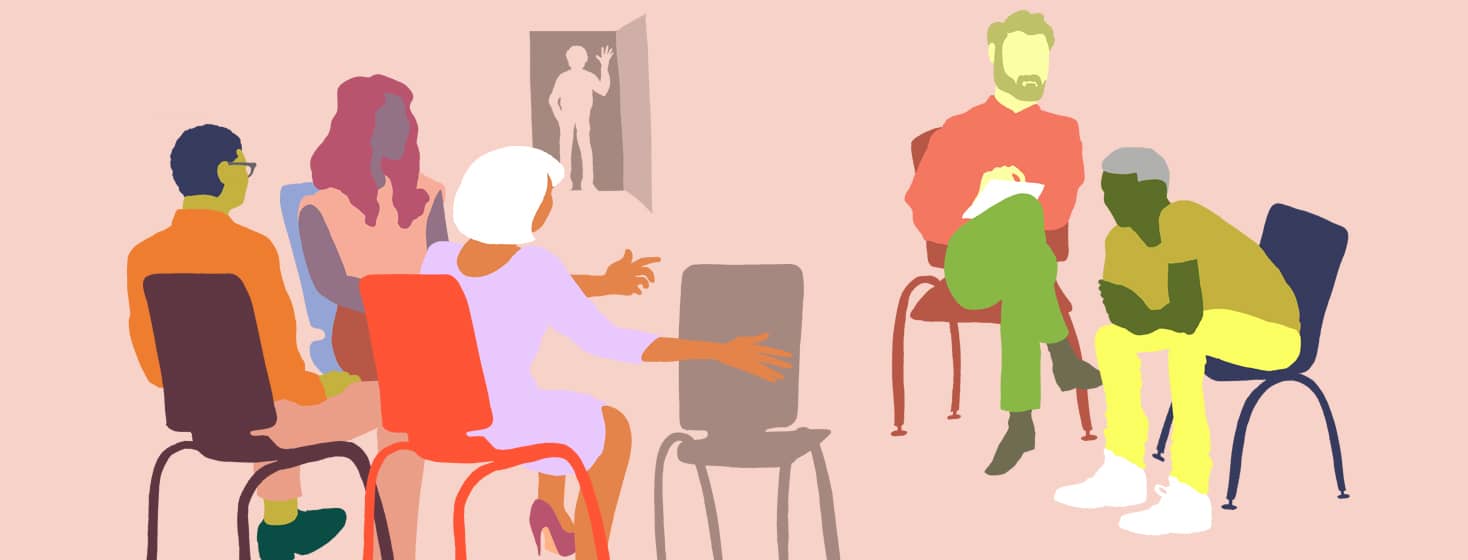Ways to Cope When Caregiving Gets Tough
Caregiving for a loved one with Alzheimer's is a grind. The grueling physical needs and emotional grief on top of the rest of life's demands can all wear down a caregiver.
When the daily burden becomes heavy, caregivers must not forget to care for themselves. Support groups, therapy, and big-picture thinking are some ways I've found to cope and heal during this most difficult time.
1: Caregiver support groups
I joined a support group for dementia caregivers right as I transitioned into full-time caring for my mom. I'm an introvert and sharing in groups can feel intimidating, but now there is nothing more boosting to my caregiver morale than leaving my group every other week knowing I am not alone.
Try to find a group specific to dementia caregiving rather than just any support group. Accepting help can be hard, but know that this is a unique disease and caregivers like you will relate better to the specific difficulties.
Dementia caregivers understand the dichotomy of dearly treasuring our loved ones while also feeling frustrated and irritated by the symptoms and behaviors. We know the nuance behind someone saying they're tired of caring for their loved one and they want a break. We cheer each other on when someone takes a vacation or a respite from caregiving, knowing how hard it is to break away.
Offerings of a support group
Support groups help caregivers realize they aren't the only ones and they usually aren't suffering the most. It offers perspective and compassion and pulls us out of the self-pity pit. There are also practical caregiving hacks and tips from those a few steps ahead.
You may need to try out a few groups until you find the right fit. The Alzheimer’s Association has resources for local support groups in most areas. Your local Area Agency on Aging or other community organizations might also offer dementia-specific support groups.
2: Therapy
Therapy is not just for those with serious mental illnesses. Trained counselors and social workers can help caregivers navigate complicated family dynamics, past trauma, and teach healthy ways to cope with stress, depression, and anxiety. Finding a good therapist can make all the difference for a caregiver.
You can talk with a therapist about things directly related to caregiving or the peripheral issues that come up. There's the guilt and anxiety about the many decisions that have to be made, the criticism from others, the loneliness and depression of sacrificing so much of your life as a caregiver.
If you're caring for a family member, sometimes the many years of history together bring up things from the past that need to be processed.
Spare the burnout
It also spares friends and family from getting burned out. Even the most supportive and generous family member gets tired or isn't always available to listen. And sometimes hearing it from an objective third party makes it ring truer and helps you hear it in a different way.
Access to therapy can be difficult and restrictive but if you can access it, it is worth the effort. Start with your insurance company, local hospitals, or ask your doctor for recommendations. Some providers will give a cash discount if your insurance doesn't cover it.
Community organizations also sometimes provide discounted or free counseling resources by licensed professionals. Many virtual therapy companies opened during the pandemic, so you don't even have to leave your house (an issue for many caregivers).
3: Big-picture thinking
In caregiving, sometimes you have to look ahead to the future to get you through the tough times now.
I'm not very good at remembering to do this and I can get really down about not being in a better mood or not giving my mom enough opportunities. My husband reminds me that this is a long game and isn't about having a perfect day every day.
We want to look back and know that our loved ones got the best care, that we honored them by helping them live the best and fullest life possible.
I want to look back and know that I didn't give up on my mom. I want to make her proud. And I also want to make sure I maintain my own life and my health in the meantime.
Pace yourself as a caregiver
And at the end of the day, we need to remember that this is a marathon, not a sprint. Don't give in to thinking that you must always put your loved ones first or you're a terrible person. You can only be the best caregiver for your loved one if you care for yourself too.
Caregivers, we need to pace ourselves and find healthy ways to cope so that we come out at the end okay. We might still come out exhausted and grieving, but we'll be in one piece.
Have you utilized these tips in your life to help cope with Alzheimer's and caregiving? Tell us about your experience in the comments below, or share your story with the community.

Join the conversation